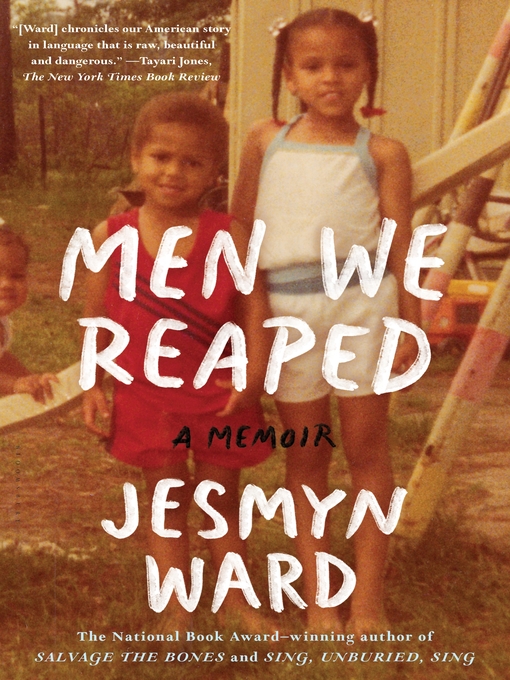
Men We Reaped
A Memoir
فرمت کتاب
ebook
تاریخ انتشار
2013
Lexile Score
1020
Reading Level
6-8
نویسنده
Jesmyn Wardشابک
9781608197576
کتاب های مرتبط
- اطلاعات
- نقد و بررسی
- دیدگاه کاربران
نقد و بررسی

September 1, 2013
National Book Award-winning novelist Ward (Salvage the Bones) recently mourned the death of five young men in four years. Accidents, drugs, or suicide claimed her brother, a cousin, and three friends. Her moving memoir details her relationships with the dead men and associates their deaths with the dismal existence experienced by many Southern black men. She explores how a history of racism, economic inequality, and lapsed personal responsibility continues to fester within portions of this population. As Ward details her loss and her family's life in Louisiana and Mississippi, she tries to understand why her brother died and digs deep within her heart and mind to discover why this is her story to tell. Through Ward's narrative, readers come to know her own struggles as the only black female in a private high school and as a budding writer finding her place in the world. VERDICT Ward's candid account is full of sadness and hope that takes readers out of their comfort zone and proves that education and hard work are the way up for the young and downtrodden. [See Prepub Alert, 3/11/13.]--Joyce Sparrow, Kenneth City, FL
Copyright 2013 Library Journal, LLC Used with permission.

June 24, 2013
In this riveting memoir of the ghosts that haunt her hometown in Mississippi, two-time novelist and National Book Award–winner Ward (Salvage the Bones) writes intimately about the pall of blighted opportunity, lack of education, and circular poverty that hangs over the young, vulnerable African-American inhabitants of DeLisle, Miss., who are reminiscent of the characters in Ward’s fictionalized Bois Sauvage. The five young black men featured here are the author’s dear friends and her younger brother, whose deaths between 2000 and 2004 were “seemingly unrelated,” but all linked to drug and alcohol abuse, depression, and a general “lack of trust” in the ability of society—and, ultimately, family and friends—to nurture them. The first to die (though his story is told last in the book) was her brother, Joshua, a handsome man who didn’t do as well in school as Ward and was stuck back home, doing odd jobs while his sister attended Stanford and later moved to N.Y.C. Joshua died senselessly after being struck by a drunk driver on a dark coastal road one night. The “wolf” that tracked all of these young men—and the author, too, when she experienced the isolation of being black at predominantly white schools—was the sense of how little their lives mattered. Ward beautifully incorporates the pain and guilt woven her and her brother’s lives by the absence and failure of their father, forcing their mother to work as a housekeeper to keep the family afloat. Ward has a soft touch, making these stories heartbreakingly real through vivid portrayal and dialogue.

























دیدگاه کاربران